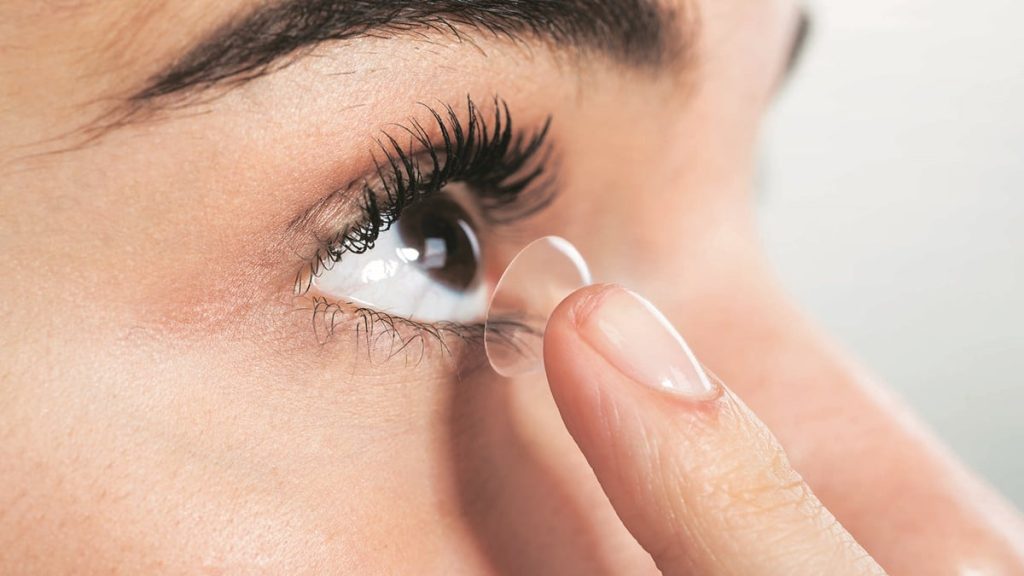Contact lenses have become a predominant alternative to traditional eyeglasses, providing a sense of freedom and aesthetic choice. Yet, with this convenience comes a heightened responsibility regarding eye care. A misstep in lens hygiene or use can lead to severe ocular complications. This article presents essential eye care tips for contact lens users, emphasizing the importance of meticulous practices in maintaining ocular health.
Before delving into the intricacies of lens care, it is paramount to comprehend the anatomy of the eye and its susceptibility to infections and irritations. The cornea, which covers the front part of the eye, is avascular, receiving oxygen and nutrients from tears and the atmosphere. Contact lenses, even though they allow for greater ease of vision correction, can obstruct this essential gas exchange, creating potential risks if not managed properly. With that in mind, let us explore the indispensable practices that every contact lens user should adhere to in order to safeguard their eye health.
Fundamental Hygiene Practices for Lens Maintenance
The significance of hygiene in the context of contact lens usage cannot be overstated. The eye is a sensitive organ, and the introduction of foreign objects necessitates an elevated level of care.
Firstly, always wash your hands prior to handling your lenses. This may seem elementary; however, microbial contamination from hands can instigate serious ocular infections, such as keratitis. Use soap free of fragrances and moisturizers, as these can introduce irritants to the eye. Thoroughly rinsing and drying your hands with a lint-free towel maximizes cleanliness.
Next, the cleaning and storage of contact lenses demand particular attention. Utilize a multi-purpose solution that is specifically designed for contact lenses; these solutions can efficiently cleanse, rinse, and store lenses. Never use water, saliva, or homemade solutions as substitutes, as they may harbor pathogens or disrupt the pH balance necessary for ocular comfort.
The frequency of lens replacement is another critical component of maintaining ocular health. Adhere to the prescribed replacement schedule, whether they be daily, bi-weekly, or monthly lenses. Overextending wear time can exacerbate protein accumulation on the lens surface, leading to discomfort and increased risk of infection.
For those who wear lenses for extended periods, consider a regimen that provides time off from lens wear to allow the cornea to breathe and regenerate its natural moisture. Additionally, using rewetting drops compatible with your lenses can alleviate dryness and enhance comfort.
Incorporating regular eye examinations as part of your routine is equally essential. A qualified eye care professional will assess lens fit, evaluate ocular health, and provide tailored recommendations to mitigate risks associated with lens use.
Pragmatic Tips for Everyday Lens Wear
Managing daily habits significantly impacts the health of your eyes when using contact lenses. Adopting prudent strategies will create a safer environment for ocular health.
When engaging in water activities, it is wise to remove contact lenses. Submerging lenses in pools, oceans, or hot tubs exposes them to harmful microorganisms and increases the risk of infections. If swimming is a frequent activity, consider using prescription swim goggles instead.
Moreover, environmental factors such as air conditioning, smoke, and dust can contribute to dryness and irritation. To counteract this, maintaining a well-hydrated environment and employing artificial tears can provide much-needed relief. Avoiding rubbing the eyes—an action often exacerbated by irritation—also plays a significant role in preventing complications.
Another essential practice is to minimize exposure to screens, which are ubiquitous in modern life. The phenomenon known as digital eye strain can negatively affect lens wearers, resulting in dryness and discomfort. To mitigate these effects, the 20-20-20 rule is a practical approach: every 20 minutes, take a 20-second break and focus on an object 20 feet away.
Finally, establishing a succinct bedtime routine that includes the removal of contact lenses is paramount. Overnight exposure to lenses can significantly increase the risk of corneal hypoxia—an inadequate supply of oxygen to the cornea. For those precariously attached to extended wear lenses, consulting your eye care provider for guidance is advisable.
Lifestyle Considerations for Optimal Eye Care
Beyond the immediate practices surrounding contact lens use, the lifestyle choices of individuals can profoundly influence ocular health. Nutritional considerations, for instance, play a pivotal role in ensuring that the eyes remain lubricated and nourished.
Incorporating a diet rich in omega-3 fatty acids—found in fish such as salmon and walnuts—has been shown to lower inflammation and promote tear production. Hydration is equally vital; adequate fluid intake contributes significantly to the eye’s ability to maintain its moisture barrier.
Engaging in habits that reduce stress can also positively affect eye health. Stress has been pinpointed as a contributor to various ocular symptoms, including dryness and strain. Techniques such as mindfulness and adequate sleep hygiene can create a healthier balance, thus preserving ocular integrity.
Additionally, understanding the importance of UV protection cannot be underestimated. Even though contact lenses may offer some degree of UV blocking, they do not substitute for comprehensive eye protection. Wearing sunglasses with 100% UV blockage while outdoors adds a critical layer of defense against ultraviolet radiation, safeguarding the conjunctiva and cornea.
Finally, recognizing the signs of ocular discomfort and knowing when to intervene is essential. Symptoms such as persistent redness, itching, excessive tearing, or visual disturbances warrant immediate consultation with an eye care professional. Early intervention is key to preventing the progression of more serious conditions.
Conclusion
In summation, contact lens users are entrusted with the responsibility of maintaining their ocular health through vigilant hygiene, sensible daily practices, and sound lifestyle choices. By adhering to these essential eye care tips, individuals can thrive in their pursuits of vision correction without compromising the health of their eyes. As ocular science continues to advance, remaining informed and educated on best practices will empower contact lens wearers to optimize their eye wellness.
Given the intricate relationship between contact lenses and eye health, periodic education and reflection on personal habits are vital. The journey toward optimal ocular care is both a science and an art that demands dedication and awareness.
